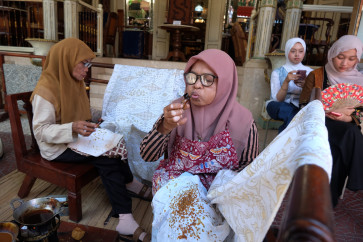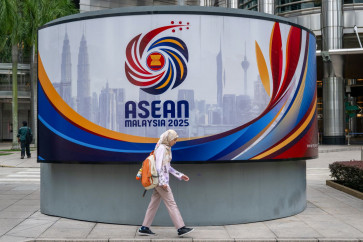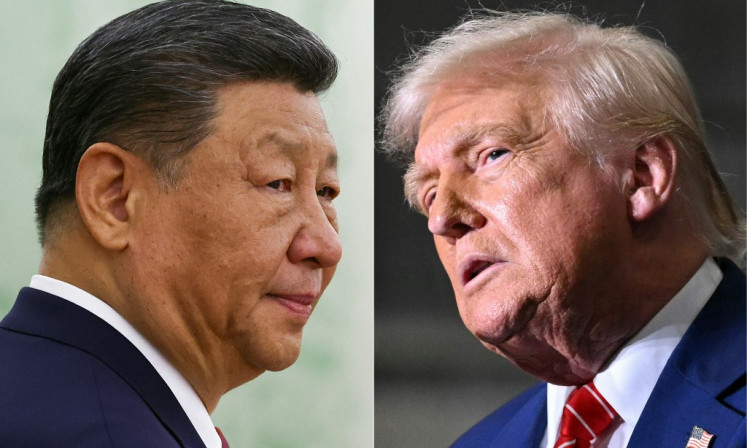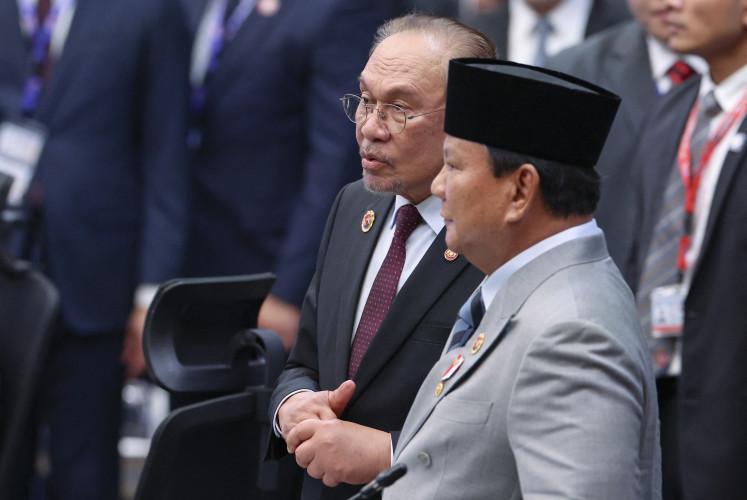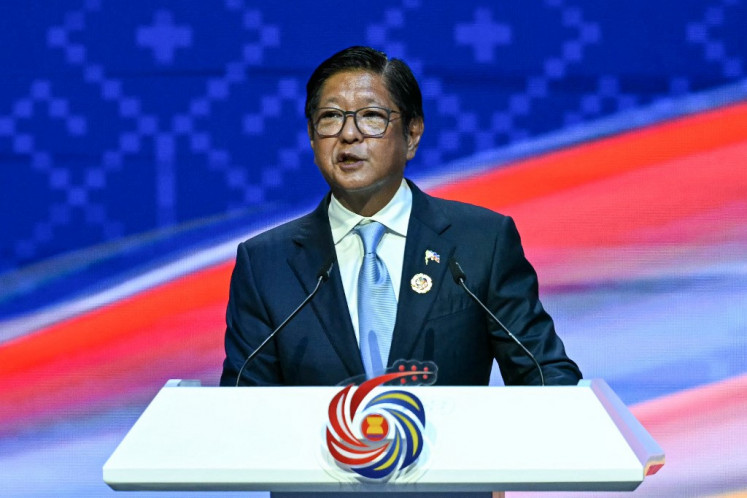Popular Reads
Top Results
Can't find what you're looking for?
View all search resultsPopular Reads
Top Results
Can't find what you're looking for?
View all search resultsOfficials, public need waste handling education, say experts
Experts have urged the Jakarta administration to include the education of officials and residents in the draft bylaw on waste management
Change text size
Gift Premium Articles
to Anyone
E
xperts have urged the Jakarta administration to include the education of officials and residents in the draft bylaw on waste management.
Urban expert Nirwono Joga said on Sunday that the most effective way of overcoming city’s waste problems was to empower the public to take care of its own trash.
“We need to change from simply throwing out trash to processing it. Incentives and sanctions will not solve the entire problem without educating the public first,” he said.
Last Thursday, the administration submitted the draft bylaw for deliberation with the City Council to replace the 1988 bylaw.
Jakarta Governor Joko “Jokowi” Widodo said after handing over the draft that he wanted Jakartans to get more involved in handling waste in the city by creating schemes, including by giving incentives and sanctions.
According to Article 84 of the draft, incentives will be given to individuals who sort and manage their waste.
Article 97 of the draft bylaw mentions that the administration is obliged to educate and monitor waste management operators. This education comprises familiarization, supervision, consultation, information dissemination and training. The draft does not specify who the “waste management operators” are.
Nirwono agreed with the idea of incentives as long as the implementation was concrete.
“The administration can give, for example, a discount on public facilities, like Transjakarta bus fares,” he said.
He said the administration should also create and strictly implement clear regulations on waste management.
He cited Singapore, one of the cleanest cities in the world, as an example. “How can Jakartans be very disciplined in not littering when they travel to Singapore, but do the opposite when they return to Jakarta?” he said.
He said the Jakarta Sanitation Agency also needed to create professional workers with adequate knowledge of waste management. “Some of them don’t even know what non-organic waste is,” he said.
Echoing Nirwono’s statement, the chairwoman of the Indonesia Solid Waste Association (InSWA), Sri Bebassari, agreed with the incentive scheme, saying that it would motivate residents to treat their trash better.
“Experts from all fields, including education, psychology and culture need to hold programs familiarizing the public with waste management,” she said.
The government itself should also promote waste management in its policies to create a culture of clean living, she went on.
“It’s like making a house. We have to build a bathroom first, not a guest room,” she said, adding that it was similar to building a city, where the administration needed to build a landfill site first.
During the review of the draft bylaw at the City Council, United Development Party (PPP) councilors highlighted the importance of educating both residents and sanitation officers on waste management.
PPP faction spokesman Ichwan Zayadi said his party urged the administration to hold programs dedicated to educating residents and sanitary officers on waste management.
Meanwhile, the Prosperous Justice Party (PKS) said the administration needed to provide infrastructure that supported trash sorting. “We don’t want trash sorted by residents to be mixed again at the final dumping site,” he said.
Jakarta, with around 10 million residents, produces 65,000 tons of waste every day.
The administration presently relies on the 108-hectare Bantar Gebang landfill site in Bekasi, which receives 92 percent of the city’s non-industrial waste, one-third of which comprises plastic and paper.
The sanitation agency plans to spend Rp 900 billion (US$92.9 million) this year to improve the city’s waste management. (cor)



